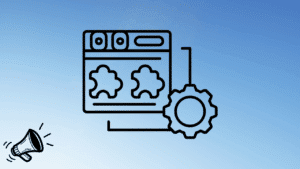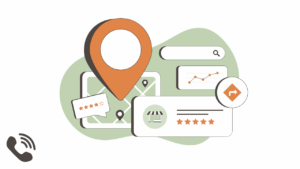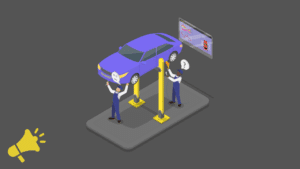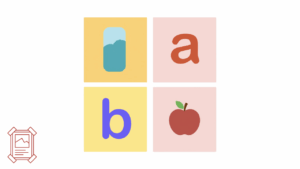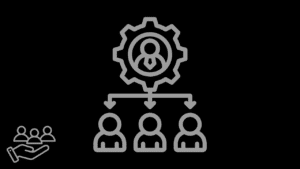The idea of working from anywhere, writing for clients, and building your own schedule sounds ideal. But there’s a common hesitation that stops many from even starting: In this article, we’ll explore how to become a freelance copywriter, with no experience needed to start your remote career.
“Can I become a freelance copywriter with no experience?”
The answer is yes. So, if you’re willing to treat it like a skill, not a shortcut. Copywriting is not a mystical talent reserved for English majors or marketing veterans. It’s a learnable craft, and many successful freelancers began with zero formal experience.
Suppose you’re ready to build a remote career that pays based on skill. Not location or degrees. This guide will walk you through exactly how to start from scratch, step by step.
What Is Freelance Copywriting (And Why It’s Different From Writing Essays)?
Copywriting isn’t about writing pages of text. It’s about writing words that sell, persuade, or drive action—whether that’s buying a product, clicking a link, or signing up for a newsletter.
It includes: Start Copywriter Remote Career
- Firstly, website copy (homepages, landing pages, sales pages)
- Secondly, email marketing campaigns
- Product descriptions
- Ad copy for Facebook, Google, TikTok
- Finally, blog content designed for SEO and conversion
Unlike journalism or academic writing, copywriting is purpose-driven. You’re not just informing. So, you’re influencing decisions.
Can You Really Start with No Experience?
Yes—but “no experience” doesn’t mean “no effort.” Become Freelance Copywriter
You don’t need a portfolio on day one. You build one. Clients don’t expect you to have years of writing under your belt. So, they expect clarity, reliability, and results.
Many beginners start by:
- Practicing writing mock projects
- Rewriting existing ads or webpages as samples
- Taking on small or unpaid gigs to build proof of skill
The key is action, not credentials.
7 Steps to Become a Freelance Copywriter from Scratch
1. Understand What Good Copy Actually Is: Start Copywriter Remote Career
Before you write a single word for clients, understand what makes copy effective. So, a good copy is clear, concise, emotionally resonant, and focused on outcomes.
Start with these free ways to learn:
- Analyze ads you see on Instagram, emails in your inbox, or landing pages
- Read proven books like The Adweek Copywriting Handbook or Made to Stick
- Study real-world sales copy and take notes on structure, tone, and CTAs
You’ll start to see patterns. Great copy isn’t flowery. It’s functional.
2. Choose a Copywriting Niche to Start With
You don’t need to commit forever, but starting with a niche makes marketing yourself easier. You’ll speak the language of your target client and understand their pain points faster.
Examples of niches:
- Health and wellness
- SaaS startups
- eCommerce and DTC brands
- Coaches and course creators
- Real estate or local service providers
Focusing helps you become a specialist. Not just another writer-for-hire.
3. Build a Simple Portfolio (Even Without Clients) Become Freelance Copywriter
Clients need to see that you can solve problems with words. Moreover, that doesn’t require a big-name brand or long list of testimonials.
You can create your own portfolio by:
- Firstly, writing a sample homepage for a fictional brand
- Secondly, creating an email sequence for a digital product you invent
- Rewriting a real landing page with your own spin
- Finally, publishing value-driven blog content on Medium or your own site
Keep your portfolio focused on results and structure, not volume.
4. Set Up a Professional-Looking Online Presence: Start Copywriter Remote Career
You don’t need a fancy website, but you do need a place to send leads.
Options include:
- A one-page portfolio site using Carrd or Notion
- A LinkedIn profile optimized for your niche (“I help coaches sell more with better email copy”)
- A simple link-in-bio tool with 2–3 samples and a contact form
Focus on clarity over creativity. Let people know who you help, how you help them, and how to reach you.
5. Learn How to Price (And Avoid Working for $5)
Pricing is where many new copywriters get stuck. So, don’t charge by the word. Don’t underprice just because you’re new.
Start with flat rates for projects like:
- $100–$300 for a landing page
- $50–$150 for a single email
- $150–$500 for blog posts (based on depth, SEO, and research)
As you grow, consider packages and retainers. In addition, always charge based on value delivered, not time spent typing.
6. Find Clients (Even Without a Network): Become Freelance Copywriter
Client work won’t fall into your lap, especially in the beginning. You need to go find it. Pitch smart.
Where to look:
- Firstly, freelancer platforms like Upwork (focus on niche, not mass bidding)
- Secondly, job boards like FlexJobs, SolidGigs, or Working Not Working
- LinkedIn search and outreach (“Hey [Name], I help [niche] brands improve conversions. Want a free audit of your homepage?”)
- Facebook groups or Slack communities for business owners
- Finally, cold pitching to startups with weak or outdated website copy
Track your outreach. Personalize your messages. Offer value first.
7. Treat It Like a Business (Not a Hustle)
Freelance copywriting is flexible, but it’s not a free-for-all. The more structure you give your business, the faster you grow.
Set up systems:
- Use Google Docs or Notion for client briefs and revisions
- Track time and invoices with tools like Toggl or Wave
- Save 20–30% of earnings for taxes and expenses
- Build a habit of weekly marketing (pitching, posting, or networking)
The writers who succeed treat their freelancing like a real business from day one. Even if it’s just them and a laptop.
Comparison Table: Beginner vs. Pro Copywriter Habits: Become a Freelance Copywriter
| Skill or Habit | Beginner Copywriter | Pro Copywriter |
|---|---|---|
| Portfolio Approach | Writing samples for imaginary brands | Results-driven case studies from real work |
| Pricing Strategy | Charges by the word/hour | Charges by project value |
| Client Outreach | Sends generic pitches to dozens | Sends personalized messages to ideal clients |
| Writing Process | Starts without a plan | Follows frameworks and client briefs |
| Business Mindset | Works when they feel like it | Schedules, tracks, and builds consistency |
FAQs About Becoming a Copywriter Without Experience
Do I need certifications to start?
No. Clients care about results, not certificates. A strong sample beats a badge.
How long does it take to land my first client?
Some land one in a week. For others, it’s a month or two. What matters most is consistency and clarity in your outreach.
Can I work part-time as a freelance copywriter?
Yes. Many start part-time before going full-time. A few hours a day can build serious momentum over time.
What if English isn’t my first language?
If you can write clearly and understand the intent behind words, you can succeed. Some writers thrive by offering copy in multiple languages.
Become a Freelance Copywriter: Final Thoughts
Starting a freelance copywriting career without experience is 100% possible. But it’s not passive. You’ll need to practice, pitch, and persist. The good news is you don’t need years of experience, expensive training, or a writing degree.
You need a willingness to learn how people think and how words influence action.
That’s what clients pay for. And that’s how you build a career that gives you freedom, fulfillment, and income on your terms.


